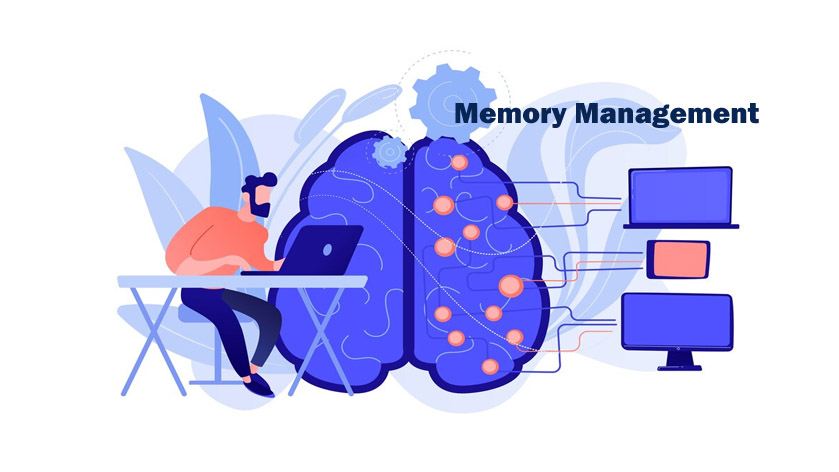Memory management is a crucial function of the operating system. It helps manage, allocate, and oversee your computer system’s physical and virtual memory resources. Memory aims to provide proper space for each process and application to run correctly without interfering with other processes that may cause system crashes.
What are the Applications of Memory Management?
Memory management has many applications throughout technology. In this article, we will discuss some of the following:
- It plays an important role in keeping the system’s stability and safety with the help of safeguarding and isolating the memory spaces of various processes. It also helps in denying unwanted access to the system. It protects the sensitive information on the system, simultaneously lowering the risks of data loss, system crashes, and malware attacks.
- This has various functions, including copy-on-write, shared memory, and more. These functions will benefit the system and facilitate data processing techniques.
- This is one of the most outstanding performances of the management. It ensures optimal system performance by allocating memory resources among competing applications and processes. This will help the computer to run multiple applications. This will also enhance the user experience.
- It will increase the space even when the physical memory is limited, allowing the device to run comprehensive applications with limited physical memory capacity.
Conclusion
In conclusion, memory management is a fundamental aspect of operating systems that is critical in ensuring computer memory resources’ efficient and practical application. Through techniques such as memory allocation, deallocation, protection, mapping, virtual memory, and optimization, this management systems facilitate the smooth operation of programs and processes while minimizing resource wastage and preventing conflicts. By carefully managing memory resources, operating systems can enhance system performance, reliability, and stability, ultimately providing users with a seamless computing experience. Effective maintaining remains a crucial focus for system designers and developers as computing environments evolve and demand increasingly sophisticated memory management solutions.

